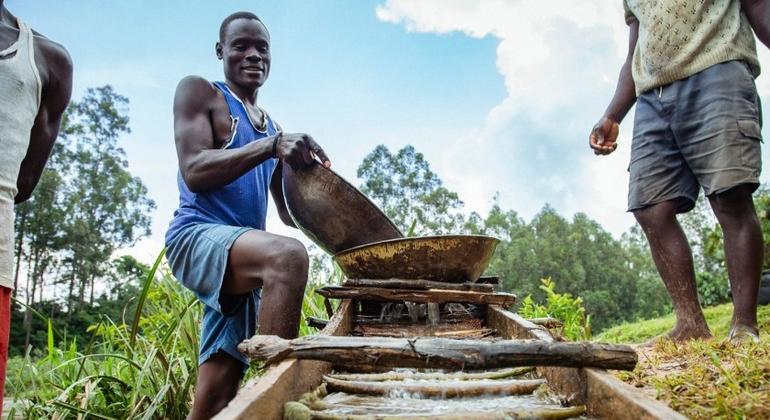Mercury is a toxic metal that can damage the brain, lungs, kidneys and immune system.
It is especially dangerous for children and pregnant women. Mercury pollution often results from industrial activities, including small-scale gold mining, and can travel long distances through air and water.
The residents of Minamata, Japan, suffered for decades from mercury poisoning after a chemical factory began discharging large amounts of contaminated water into the city’s bay in the early 1930s.
Destructive effect
The mercury contaminated seafood and those who ate it experienced devastating symptoms ranging from tremors to hearing loss, paralysis and death.
A pregnant woman has given their unborn children serious disabilities, such as blindness, deafness and severe mental disabilities.
Eventually, the public outcry led to an international treaty, the Minamata Convention, which entered into force in 2017 to limit mercury emissions and the use of the metal and prevent further such tragedies from occurring.
As part of the Convention, delegates from governments, the UN, intergovernmental agencies, civil society, indigenous peoples and youth meet every two years to review progress and press for further action.
Globally, up to 20 million miners work in artisanal and small-scale gold mining, which experts say is often unregulated and unsafe.
On Monday, the sixth conference opened in Geneva, where delegates hoped to speed up the phase-out of products that still contain mercury, such as batteries, light bulbs and cosmetics – and reduce emissions from factories and other sources.
They will also discuss ways to improve support for countries that need help meeting their commitments, including financing and technical advice.
Laying the foundation
Speaking at the opening, Elizabeth Mrema, deputy head of the United Nations Environment Program (UNEP), highlighted progress in helping countries understand the scale of mercury use and emissions, and “lay the foundations for effective action.”
Mrema also noted that it is the 20thth the anniversary of the UNEP-led Global Mercury Partnership, which brings together nearly 300 partners from the public and private sectors to raise awareness of the need for global action against mercury.
The group has helped countries develop national action plans to eliminate the use of mercury – extremely harmful to the health of miners – in small-scale gold mining operations.



